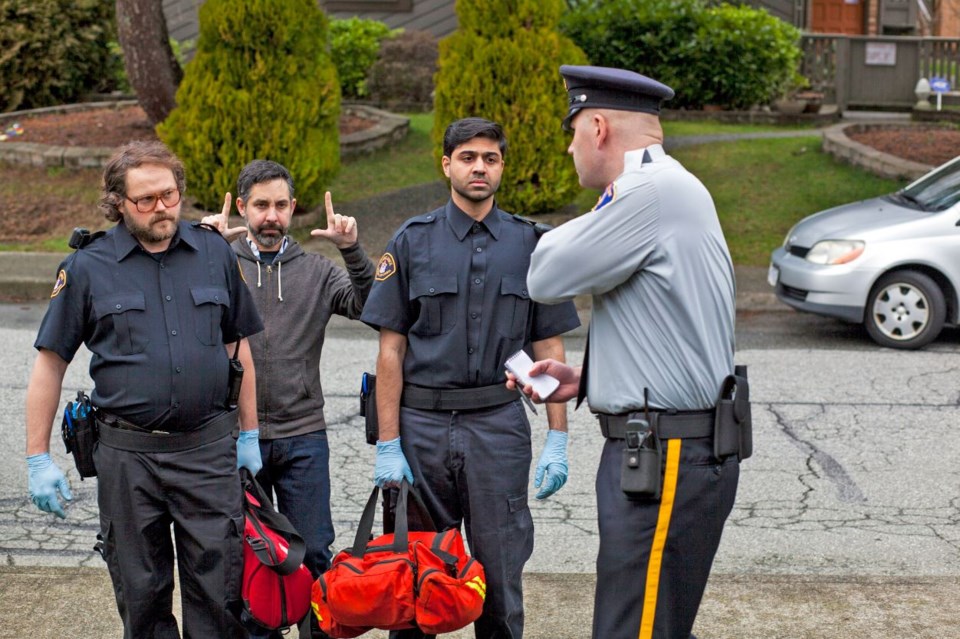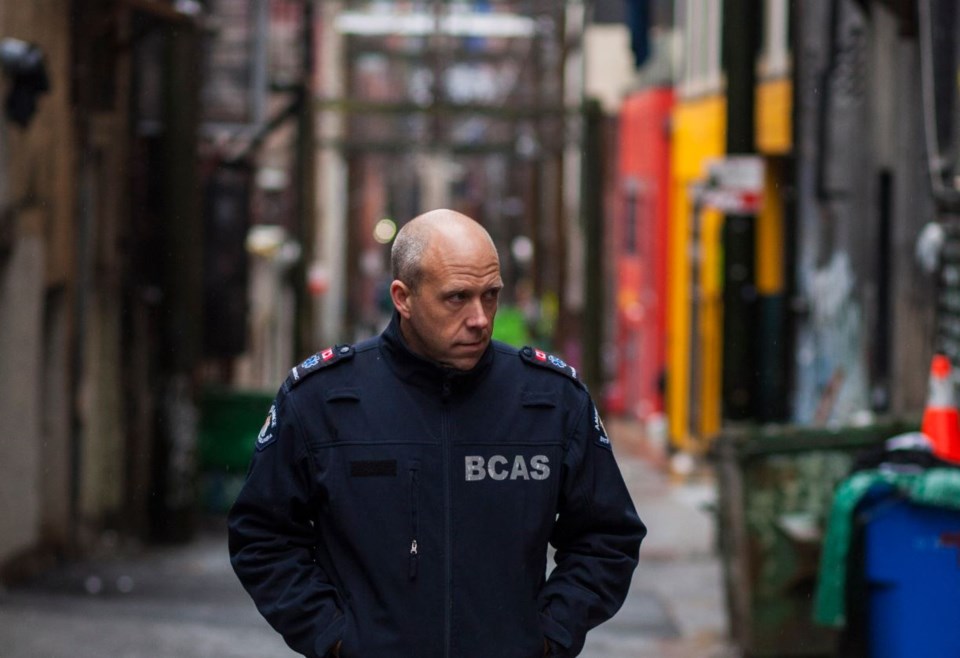They’re the heroes who race into peril when everyone else is running in the opposite direction: police officers, firefighters, paramedics.
But paramedics are more likely to suffer from post-traumatic stress disorder — and commit suicide — than other first responders. PTSD affects one in 10 Canadians; for paramedics, it’s estimated to affect one in four — and given the low rates of reporting, it could be much higher.
A new documentary from �鶹��ýӳ��director Kevin Eastwood highlights the PTSD crisis facing paramedics and seeks to break down the stigma that contributes to suicide ideation, substance abuse and suffering in silence.
Eastwood had been gearing up to make a documentary about the opioid crisis when a doctor friend in the Downtown Eastside suggested he take a closer look at paramedics instead.
“She said, ‘You know what nobody is talking about enough is what is happening to the first responders,’” recalls Eastwood. That conversation took place one year ago, and the suggestion sparked After the Sirens, which airs this weekend on CBC Television.

After the Sirens delves into the crisis through the eyes of three paramedics who’ve experienced PTSD to understand what it looks like (depression, night terrors, violence, denial, high-risk behaviours) and what can be done to help people like them.
Through re-enactments and interviews, After the Sirens lays bare the on-the-job moments that traumatized these paramedics — walking through a house filled with homicide victims, a shooter still unaccounted for, as they assess whether each crumpled body they come across is alive or dead; tending to a man who has just murdered several women; discovering a close friend dead from an overdose; and the damage these horrors have wrought on their lives, including drug abuse, anxiety attacks and suicide attempts.
Eastwood met one of the paramedics — Clive Derbyshire, who works in the Downtown Eastside — while he was filming the award-winning documentary series .
“[At the time] I had no idea about was what was going on inside for him,” recalls Eastwood. “I would see him in his workplace and he would be on the top of his game. He was a great paramedic, and I knew him as this charismatic and likable personality, so to learn that he was covering up a whole bunch of complex mental health challenges was revealing.”
In one of After the Sirens’ many gut-punching moments, Derbyshire reveals to a man who is refusing further treatment after surviving an overdose that he himself has used drugs in that same alley.
PTSD — which dates back to the First World War when it was known as shell shock — is not something that people can run from. PTSD often leads to significant biological changes in the brain, which can manifest in a variety of ways, including paranoia, flashbacks, literally feeling like you’re reliving the event and suicidal ideation.
Paramedics are particularly vulnerable to PTSD because of “how massive and widespread the stigma against PTSD actually is” amongst paramedics themselves, says Eastwood. “I heard lots of people who I wouldn’t have expected to say such things referring to some of these paramedics as, ‘Oh, they’re just some of the crazy ones.’ That was really surprising, and made me realize how much of a mountain the stigma is and has been for paramedics.”
Which is precisely why Eastwood feels a documentary like After the Sirens is essential: it drags the stigma into the light and, he hopes, changes attitudes. Still, Eastwood encountered some paramedics who were reluctant to participate in his film because they were worried it would negatively impact what people think about first responders.
“Some people said to me they’re nervous about speaking out because they don’t want the whole world to think, ‘Oh, you call a paramedic and they might be Nicolas Cage from Bringing out the Dead’ — and that’s obviously not the case, and that’s not the intent of raising awareness,” adds Eastwood. “There is a legitimate problem that’s happening, and there are disproportionate numbers of paramedics suffering that need to be helped.”
For Eastwood, one of the most profound moments during production occurred when one of the paramedics showed Eastwood a certificate first responders receive when they successfully save someone from a cardiac arrest.
This resonated with Eastwood, who survived a cardiac arrest in 2013. “I’m able to do this work right now because of the work of paramedics, and while it wasn’t this particular paramedic who saved my life, it was easy in that moment to transpose my gratitude from strangers who, I’m embarrassed to say, I didn’t even know their names,” says Eastwood.
“I’m one of the millions of people out there who owe their lives to paramedics, and so it seems odd that the people that we entrust and have an expectation of saving our lives, we’re not doing that great a job in return.”
After the Sirens airs April 8 on CBC Docs POV.


